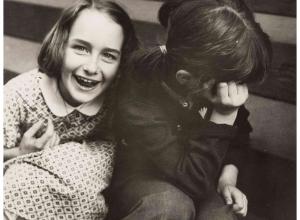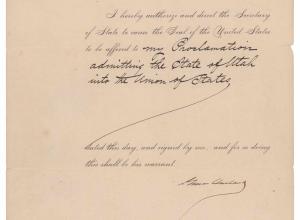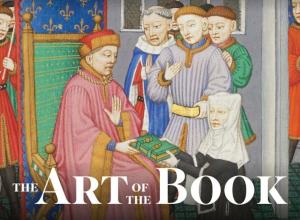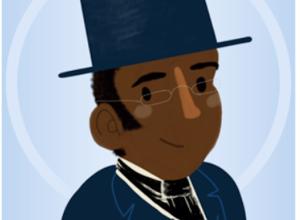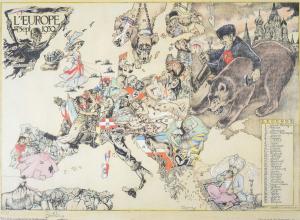My Life Here and There
A concept I find absolutely fascinating is the social history of
books--learning something about through whose hands a volume may have
passed, and the various lives it has touched--not just the details of
its content, scarcity, or rarity, as the case may be, but its travels as an artifact.
A perfect example of this phenomenon emerged in an email I got last week from John D. Cofield, a person I've never met, but one who I have admired for some time for the insightful reviews he writes on Amazon.com of books that interest him. By way of back story, I had emailed Cofield some months ago to thank him for what I thought had been a very perceptive review he wrote of "Every Book Its Reader." We exchanged a few pleasantries on our mutual passion for books, and that was that.
A perfect example of this phenomenon emerged in an email I got last week from John D. Cofield, a person I've never met, but one who I have admired for some time for the insightful reviews he writes on Amazon.com of books that interest him. By way of back story, I had emailed Cofield some months ago to thank him for what I thought had been a very perceptive review he wrote of "Every Book Its Reader." We exchanged a few pleasantries on our mutual passion for books, and that was that.
Then, last week, Cofield wrote me with details of an anecdote he thought I'd enjoy, and he was right. I liked it so much, in fact, I asked if he minded my sharing it with my readers here. (This is what a blog is all about, right?) Anyway, he's fine with that, so here's the story, entirely in his words:
"Back in 1981 I bought a book at a library sale in Chattanooga, Tennessee, called 'My Life Here And There.' Published [by Scribner's] in 1921, it was the memoirs of a granddaughter of Ulysses S. Grant who married a Russian prince [her married name was Princess Julia Cantacuzene] and lived in St. Petersburg until after the Revolution. It wasn't all that great of a book, but I liked it because she was the granddaughter of a President. Anyway, I was sorting through some old books of mine last week and looked at 'My Life Here And There' more closely. It had always had a ladies' visiting card slitted into the front page with a handwritten message on it saying something about 'I'm so sorry for your loss and I hope when you can read again this will give you some distraction.'
"Obviously the book had been given by a lady to another lady who had just suffered a bereavement. Now I looked more closely at the card and saw it was engraved 'Mrs. Benet.' The little message written on it was signed 'Frances Rose Benet' I wondered if there could be a connection to Stephen Vincent Benet so I typed her name into Google and lo and behold, Frances Rose Benet was Stephen Vincent's mother!
"Back in 1981 I bought a book at a library sale in Chattanooga, Tennessee, called 'My Life Here And There.' Published [by Scribner's] in 1921, it was the memoirs of a granddaughter of Ulysses S. Grant who married a Russian prince [her married name was Princess Julia Cantacuzene] and lived in St. Petersburg until after the Revolution. It wasn't all that great of a book, but I liked it because she was the granddaughter of a President. Anyway, I was sorting through some old books of mine last week and looked at 'My Life Here And There' more closely. It had always had a ladies' visiting card slitted into the front page with a handwritten message on it saying something about 'I'm so sorry for your loss and I hope when you can read again this will give you some distraction.'
"Obviously the book had been given by a lady to another lady who had just suffered a bereavement. Now I looked more closely at the card and saw it was engraved 'Mrs. Benet.' The little message written on it was signed 'Frances Rose Benet' I wondered if there could be a connection to Stephen Vincent Benet so I typed her name into Google and lo and behold, Frances Rose Benet was Stephen Vincent's mother!
"So that excited me since I had always loved "The Devil and Daniel
Webster.' I looked for more information on the Benets and found the email
address of a professor, Lincoln Konkle, at The College of New Jersey who had
written a biography of Stephen Vincent Benet, and emailed him to tell him
about my book. He was interested and suggested I contact the Beinecke Library
where Stephen Vincent Benet's papers are housed. I did, and their head
curator, Nancy Kuhl, responded that they would be very pleased to have the
book. I mailed the book to them late last week. I'm so surprised that a book I
paid something like 50 cents for could have such a history behind it, and I'm so
proud that I'm able to donate something to so eminent an institution as the
Beinecke. I just wish there had been some indication of who the recipient of
the book was, but there was no name or address in the book at all."
A terrific book story, and like all terrific book stories, this one has kept a few secrets to itself. Cofield, by the way, teaches social studies in a Georgia High School, and is obviously a great believer in the power that books have to stir the world. Many thanks to him for passing this along.
A terrific book story, and like all terrific book stories, this one has kept a few secrets to itself. Cofield, by the way, teaches social studies in a Georgia High School, and is obviously a great believer in the power that books have to stir the world. Many thanks to him for passing this along.





